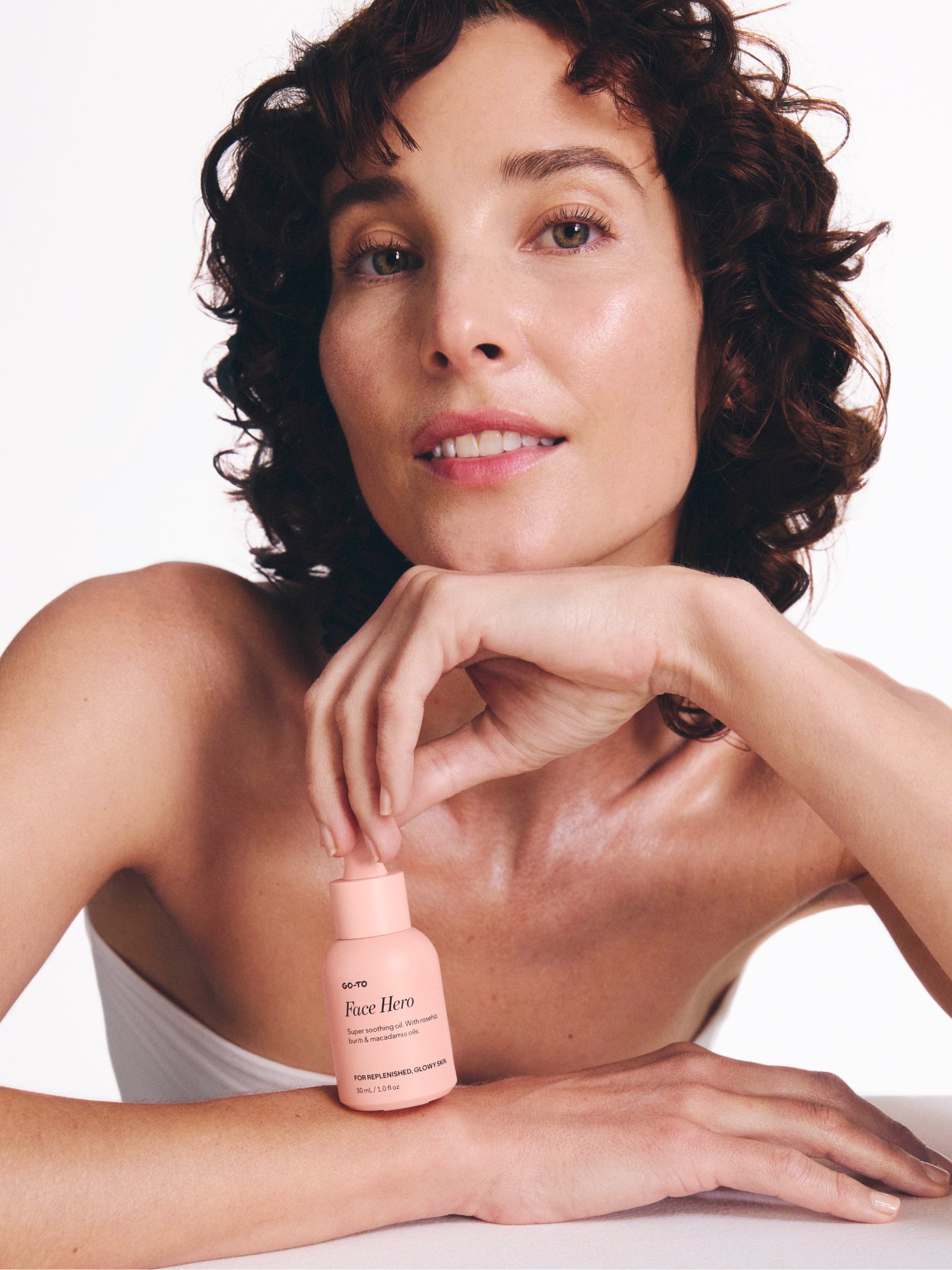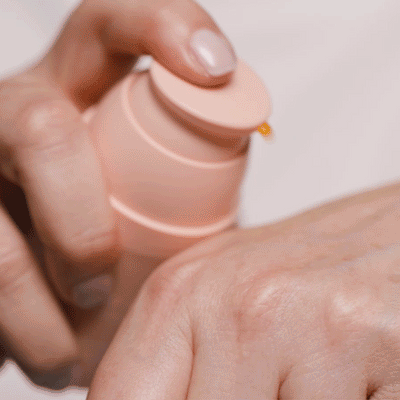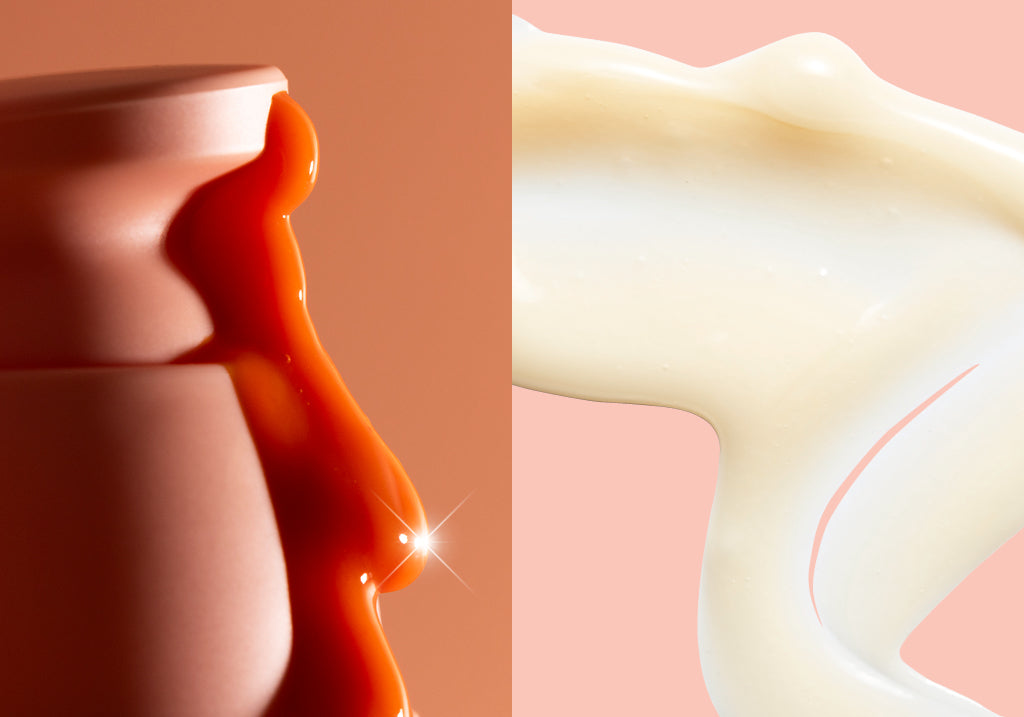Congratulations, it’s a skincare! A peachy bundle of joy that’s all yours to love and to hold.
Just like a new baby, bringing new skincare home is no easy feat. Will it play nice with its skincare siblings? Will it wreak havoc? Are you really ready for this? I answer all these questions about what to expect when you’re expecting a new skincare ingredient in this very helpful guide.
What To Know About Adding A New Ingredient?
Skin is personal—based on a bucketload of factors (genetics, climate, habits). And how you react to certain ingredients is very personal as well.
The most important thing to remember when trying to add a new ingredient is that not all ingredients or products are going to work for you and your skin’s needs.
New-fangled skincare can be very tempting but sometimes: It’s best to stick with the routine that’s working for you. As they say: If it ain’t broke, don’t overwhelm it with new ingredients and random products that the internet told you to use.
How To Introduce Something New Into Your Routine
1. Do Your Research
Skincare is a fickle frog. Just because someone on TikTok (with the most amazing skin you’ve ever seen) said some ingredient is a holy-grail, must-have, life-savior etc. doesn't mean it's necessarily going to work for you and your skin. Unfairly cruel? Yes. Very true? Also yes.
That means it’s important to do your research and make sure this allegedly world-shifting new ingredient will actually work for you and your skin type.
First of all: Check to see how this new ingredient will interact with the rest of your skincare routine. There’s a few forbidden skincare ingredient combinations that end up doing more harm than good when used together. It might be helpful to stop certain products while you try this new one.
And second: Make sure this new ingredient is designed for your skin type/ skin concerns. Certain products might work wonders on someone else’s skin but if you’re not formulated to tackle your skin issues, they might do nothing.
2. Patch Test
Which brings us to the next, very important step of new skincare: The Patch Test. The way your skin reacts to a product might be totally different to how your sister/best friend/aforementioned person on TikTok would.
It’s well worth your time to make sure the stuff in your routine is right for you before you start slathering it all over your face. And speaking of time, the whole patch testing process is very quick and could save you from dealing with a much bigger reaction. Find out how to patch test here.
3. Slow But Steady (Follow The Instructions)
If this new ingredient is an active (but even if it’s not) you should play it easy for the first few weeks so your skin can adjust. Start by incorporating this new ingredient into your routine a couple of times a week to help build up your tolerance.
Adding a new ingredient too fast could damage your skin barrier, leading to a whole gamut of skin issues (dryness, irritation, breakouts). Start low and slow so you can give this new ingredient the best chance to work its wonders.
4. Brace For The Purge
Purging is a very common reaction to a new (active) ingredient. Since skin cell turnover has sped up, any lurking congestion is brought to the surface causing a breakout. We go through how to spot a purge (and how to treat it) over here.
5. Monitor The Results
If you’re experiencing any reactions that go beyond purging (irritation, flakiness, discomfort), it might be time to stop using that ingredient. Immediately.
But don’t forget to track any positive changes in your skin as well so you can decide whether this new ingredient deserves a permanent spot in your routine. Skincare takes time to work so don't forget to be patient.
So, Should I Add [Insert Ingredient] Into My Skincare Routine?
If it’s suited to your skin type and formulated for your concerns: Go for it. Despite the earlier metaphor, skincare can be terrifically low commitment. You can always try an ingredient and if it doesn’t work for you, give it to a friend (or take advantage of our 30-day returns).
Remember: Sometimes things just don’t work out. But sometimes things really do!















Comments